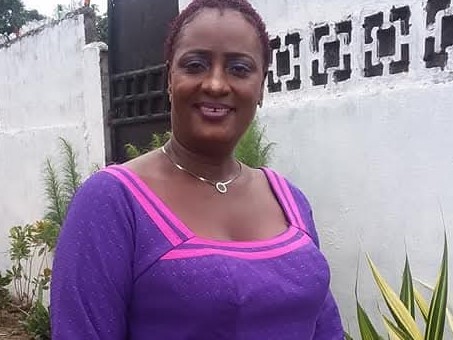By Gblogba Nyonklay
Williametta W. Moulton, a 40-year-old mother of two daughters, has come forward with harrowing details of sexual abuse she endured during Liberia’s civil conflict—and the continued threats she faces from her wartime abuser, now a senior government official.
Moulton alleges that in 2002, during the height of the Liberia United for Reconstruction and Democracy (LURD) rebel incursion, she was raped by Daddy Gibson, then a commander in the rebel group operating in Western Liberia.
“Daddy molested me in 2002 in Bomi County,” she recounted, tears streaming down her face.
At the time, Monrovia was under siege. The rebels had seized the Freeport of Monrovia, cutting off access to food and essential supplies. Starvation gripped the capital, while rebel-held territories, including Tubmanburg in Bomi County, had access to looted goods from the port.
“My family was starving. Hunger was taking a toll on us,” Moulton explained. “I decided to travel to Tubmanburg to get food for my children.”
With her husband’s reluctant approval, she set out on August 9, 2002, hoping her status as a young mother would allow her safe passage. But at the Clay checkpoint, she encountered a rebel fighter known as “War Giant,” who promised to help her obtain supplies.
“That was the beginning of my nightmare,” she said.
After waiting for over an hour, Moulton was escorted by War Giant and his armed, intoxicated fighters to an abandoned house deep in the forest. There, she was raped.
“I was surrounded by young boys high on drugs and alcohol, armed with all kinds of guns. I had no choice,” she recalled, clutching her blouse. “They didn’t care about my condition. They raped me and left me there.”
She managed to walk back to the main road and found a vehicle heading to Monrovia, abandoning her mission due to the trauma she had suffered.
Years later, Moulton says her abuser—now Deputy Director at the National Bureau of Concessions—continues to harass and threaten her.
“Although the war ended, and I’ve tried to live a normal life, the scars remain,” she said. “My husband and children have been my strength.”
In May, she spotted Gibson on Broad Street in Monrovia, surrounded by high-ranking government officials. To her shock, he recognized her and invited her to his office the next day.
“I went, thinking we could talk as friends. But he wanted a relationship,” she said. “I told him I was married. He said he would get what he wanted from me—whether I agreed or not.”
Gibson later visited her home while she was away in the United States attending a church conference. When her husband informed him, she was not home, Gibson accused him of lying and ordered his men to beat him.
“They flogged my husband mercilessly and threatened to harm my children,” Moulton said. “Our neighbors were too afraid to intervene.”
She reported the incident to the police, but claims no action was taken due to Gibson’s close ties with Monrovia City Mayor Jefferson Koijee and other senior officials of the ruling party.
“My family lives under the shadow of fear and intimidation,” she said. “My life is at risk. The man who abused me during the war wants to strip away the dignity I’ve fought so hard to reclaim.” With tears in her eyes, she concluded: “My life is being turned upside down. My family is living in fear.”


